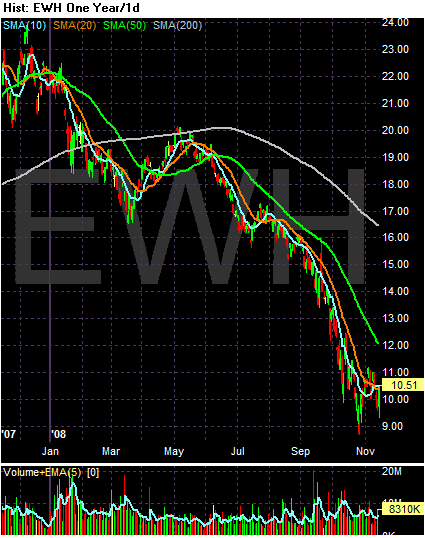A global economic slowdown, financial turmoil and home-grown problems pushed the 15-nation euro zone into its first recession since the debut of the single currency nearly a decade ago, data showed Friday.
The region's third-quarter gross domestic product shrank 0.2% compared to the previous quarter, according to the statistical agency Eurostat. The second quarter also saw a 0.2% decline.
Recession is commonly defined as two or more consecutive quarters of falling GDP.
On an annualized basis, GDP for the July-through-September period rose 0.7% compared to the same period last year -- the slowest pace of annual growth in more than six years.
And it's going to get worse, economists say.
"With manufacturing activity in a freefall due to an inventory overhang and plunging orders, services hit hard by the credit crisis and construction activity starting to contract, future growth prospects appear gloomy," said Aurelio Maccario, chief euro-zone economist at UniCredit MIB in Milan.
The recession's likely to deepen in the current quarter and into the first quarter of 2009, said Maccario, who has penciled in 0.4% declines for both quarters, as well as a negative outturn in the second quarter before signs of a rebound emerge during the second half.
Also of note, bank lending is likely to slow sharply, said Ben May, an economist at Capital Economics.
And with exports set to drop amid the global economic slowdown and falling house prices likely to erode household wealth, the euro zone is on track to contract by 1% in 2009, he said.
Reinforcing the gloom, European registrations for new passenger cars fell 15% on the year in October, to 1.13 million vehicles, as consumers continued to delay big-ticket purchases, the European Automobile Manufacturers Association, said Friday.
First, recession is defined as two quarters of negative growth according to people who need simplistic talking points to deliver. The reality is usually far more complicated.
Looking deeper into the news report, it's clear there are serious problems. Manufacturing is taking a huge hit, the credit crisis has slammed the service industry and housing/construction is taking a massive hit from a housing contraction. If this looks incredibly familiar, it should: it's exactly what is happening in the US.
Here are some of the relevant ETFs. All show economies that traders are expecting to be slow or negative growth.
Germany
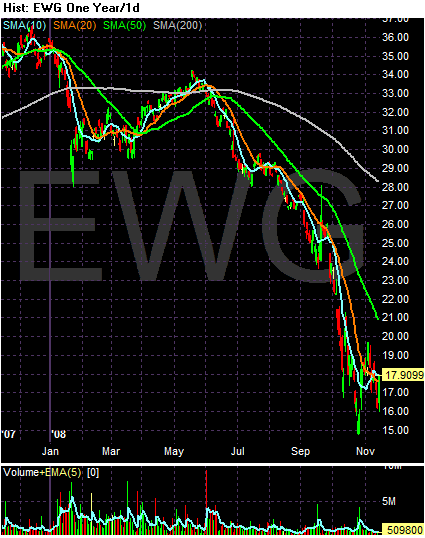
United Kingdom
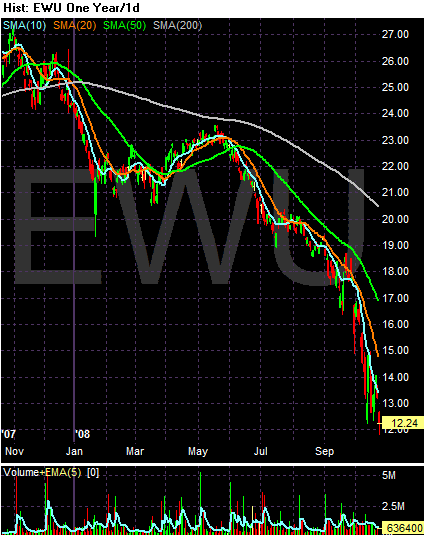
France
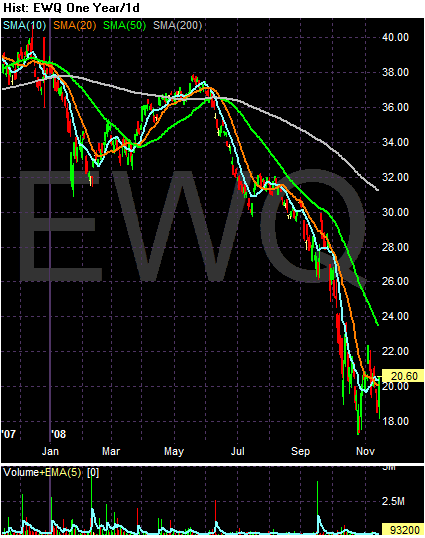
Spain
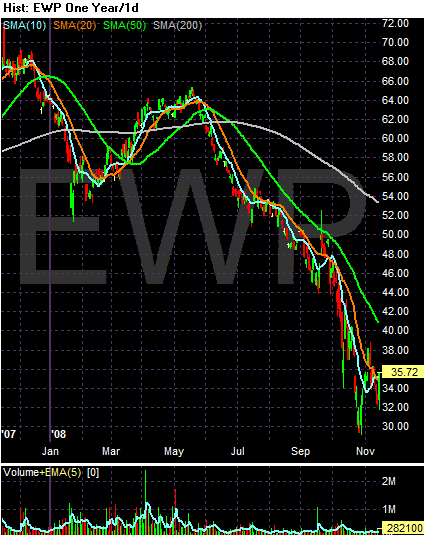
And Europe isn't the only economy now is a recession:
Hong Kong's economy moved into recession for the first time in five years in the third quarter, as the financial crisis ripped through its property and stocks markets, and slowing global business conditions damped demand for service-sector dependant economy.
Gross domestic product contracted 0.5% from the previous quarter, after contracting 1.4% in the second quarter, according to government data released Friday.
"Demand towards the end of the quarter was severely hit by the outbreak of the global financial tsunami that caused significant jitters in the local asset markets," the government said in the release
Here is the relevant ETF. Like the European ETF's this one shows an economy traders are expecting low or no growth from:
